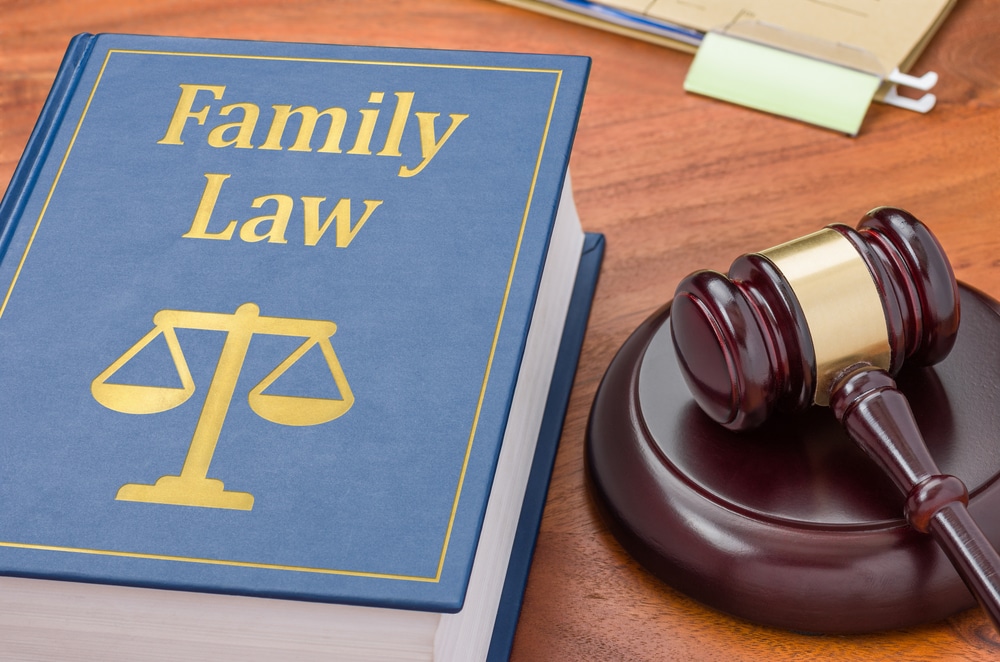Understanding the work of a family lawyer
Family lawyers specialise in legal issues that arise within family structures, which can often be complex and emotionally charged. Their expertise extends to various matters, ensuring that clients receive tailored guidance based on their unique circumstances. These lawyers often find themselves navigating the murky waters of divorce, child custody arrangements, and property settlements.
The broad scope of family law encompasses a diverse array of topics, such as marriage, civil partnerships, separation, and domestic violence. Each aspect requires a nuanced understanding of the law, as well as sensitivity towards the emotional stakes involved. Family lawyers are often at the forefront of these discussions, helping clients find a way forward during turbulent times.
Key responsibilities of a family lawyer near me include advising clients on their rights and obligations, representing them in legal proceedings, and negotiating settlements. They are there to ensure that their clients feel supported and informed throughout the legal process. This support can significantly alleviate stress, which is so common in family disputes.
In addition to the aforementioned responsibilities, family lawyers also play a crucial role in mediation and dispute resolution. They often encourage clients to consider alternative dispute resolution methods, such as collaborative law or mediation, which can lead to more amicable outcomes and preserve relationships, especially when children are involved. This approach not only saves time and money but also fosters a less adversarial environment, allowing families to focus on rebuilding their lives rather than engaging in protracted legal battles.
Furthermore, family lawyers must stay abreast of changes in legislation and societal norms that may impact their practice. For instance, the increasing recognition of same-sex marriages and partnerships has led to evolving legal frameworks that family lawyers need to navigate. They must also be aware of the implications of international law, particularly in cases involving cross-border custody disputes or international adoption. This ever-changing landscape requires family lawyers to be adaptable and well-informed, ensuring they can provide the best possible advice and representation to their clients.
The importance of family lawyers in dispute resolution
Mediation and negotiation skills are essential tools in a family lawyer’s kit. Many disputes can be resolved outside the courtroom, and experienced lawyers are adept at facilitating discussions that lead to amicable solutions. This not only saves time and costs but can also protect familial relationships, which is often of utmost importance. By fostering an environment of open communication, family lawyers help to reduce the emotional strain that often accompanies disputes, allowing families to focus on finding mutually beneficial outcomes rather than becoming entrenched in adversarial positions.
Protecting a client’s rights and interests can sometimes mean taking a firm stance against other parties. Family lawyers advocate fiercely for their clients, ensuring that their needs are represented and addressed within the legal framework. This advocacy is particularly crucial during times of vulnerability, as clients may be overwhelmed and unsure of their next steps. Furthermore, family lawyers are well-versed in the nuances of family law, which can vary significantly from one jurisdiction to another. Their expertise allows them to navigate complex legal landscapes, ensuring that their clients are not only informed but also empowered to make decisions that will affect their futures.
In addition to their legal acumen, family lawyers often serve as a source of emotional support for their clients. The process of resolving family disputes can be fraught with tension and anxiety, and having a compassionate advocate can make a significant difference. Many family lawyers are trained to recognise the emotional aspects of family law issues, providing a listening ear and practical advice that extends beyond mere legal considerations. This holistic approach can help clients feel more secure in their decisions, knowing that they have someone in their corner who understands the personal stakes involved.

Moreover, family lawyers often collaborate with other professionals, such as financial advisors and mental health experts, to provide a comprehensive support system for their clients. This multidisciplinary approach ensures that all aspects of a client’s situation are considered, allowing for more effective resolutions. Whether it’s negotiating a fair settlement in a divorce or determining custody arrangements that prioritise the well-being of children, family lawyers play a pivotal role in creating solutions that are not only legally sound but also sensitive to the emotional dynamics at play.
The process of legal dispute navigation
The process typically begins with an initial consultation and case assessment. This stage is vital, as it allows the lawyer to understand the specifics of the situation and the client’s desired outcomes. Clients should be prepared to discuss sensitive personal information, as this will help the lawyer develop an informed perspective on the case.
Once a comprehensive understanding has been established, developing a legal strategy becomes the priority. This strategy will outline the steps to be taken, whether it’s pursuing mediation, filing for divorce, or negotiating child support. A well-structured plan not only provides clarity but also instils confidence in the client.
Implementation and adjustment of the strategy often occurs as the case unfolds. Family lawyers need to remain flexible, adapting to new information or developments in the case. This responsiveness is crucial, as circumstances can change rapidly within family disputes, and a successful strategy must reflect that dynamism.
The emotional aspect of family law disputes
The role of a lawyer as a counsellor cannot be understated. Family law disputes are not merely legal battles; they are deeply personal situations involving significant emotional turmoil. A good family lawyer provides not only legal advice but also a listening ear and emotional support. They understand the weight of the issues at hand and strive to assist clients in navigating their feelings throughout the process.
Balancing legal and emotional support is a delicate dance. A family lawyer must ensure that their clients are making decisions that are as emotionally sound as they are legally viable. This balance is essential to foster a resolution that honours both the legal intricacies and the emotional health of the client.

The cost of hiring a family lawyer
Understanding legal fees and costs is a critical aspect for many clients embarking on this journey. Fees can vary widely based on the complexity of the case, the lawyer’s experience, and the geographical location. It’s important for clients to have an open dialogue with their lawyer about potential costs and to seek clarity on billing practices to avoid surprises down the line.
However, the value of professional legal assistance often outweighs the investment. A skilled family lawyer can guide individuals through a daunting process, ensuring that their rights are upheld and their interests safeguarded. This level of expertise can ultimately lead to better outcomes, making the cost of hiring a family lawyer a worthwhile consideration for navigating legal disputes.
See Also: What is building and construction law? a complete overview.

